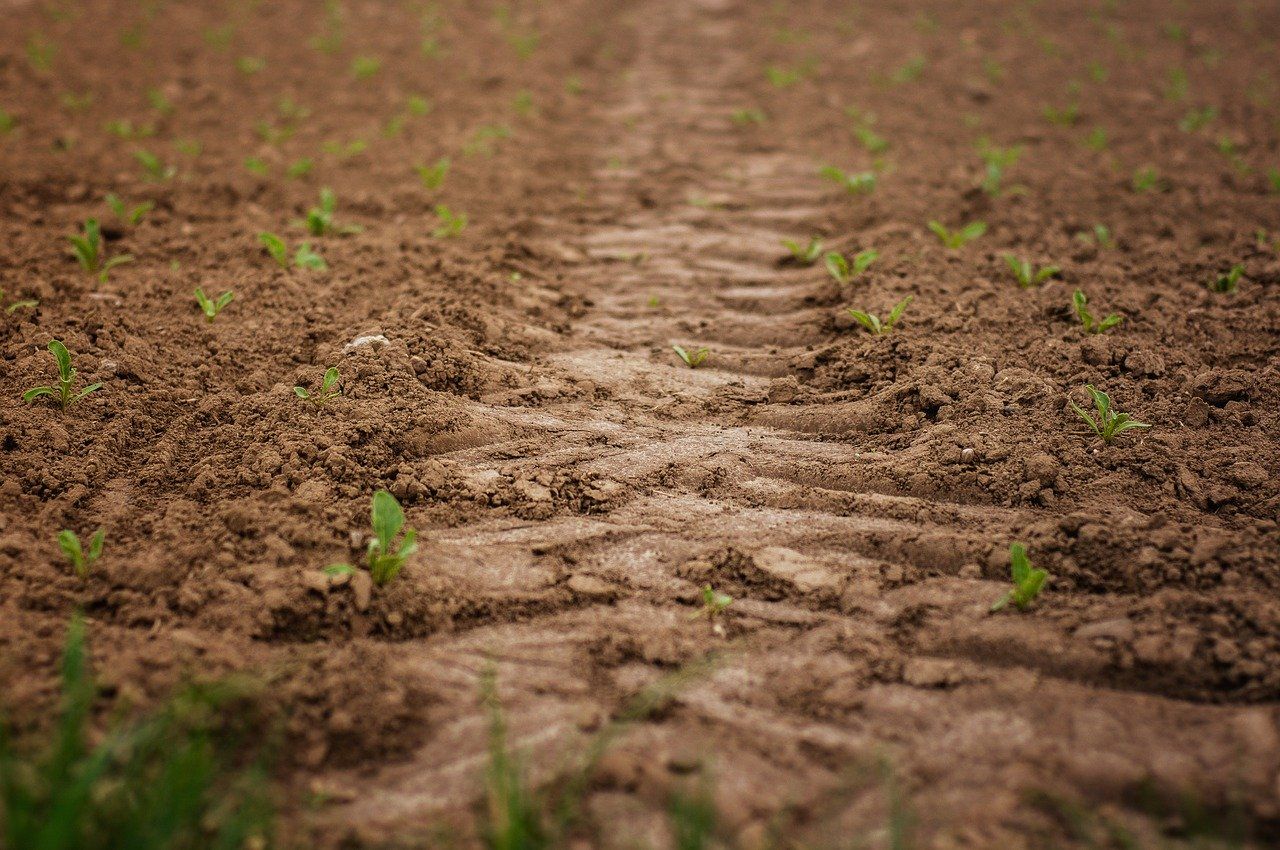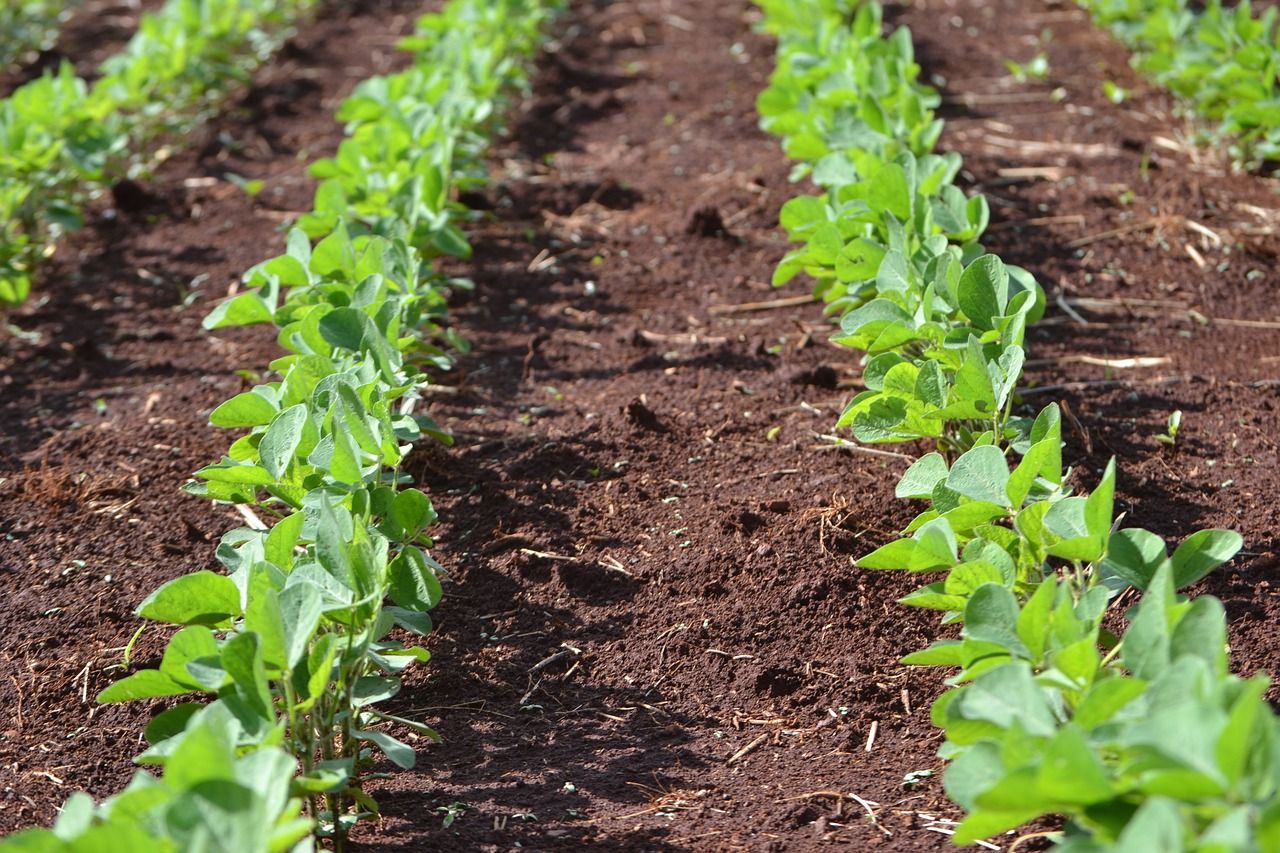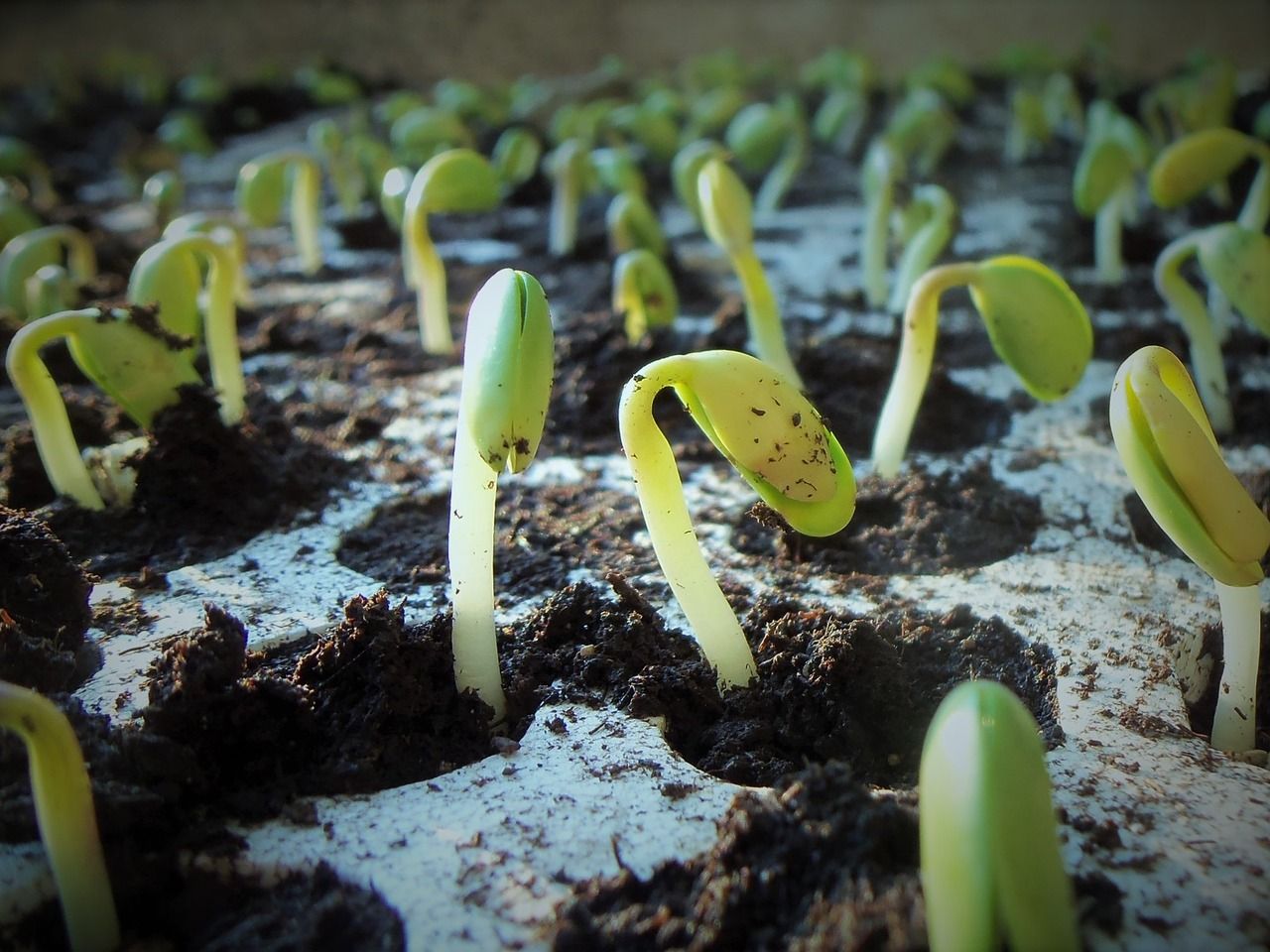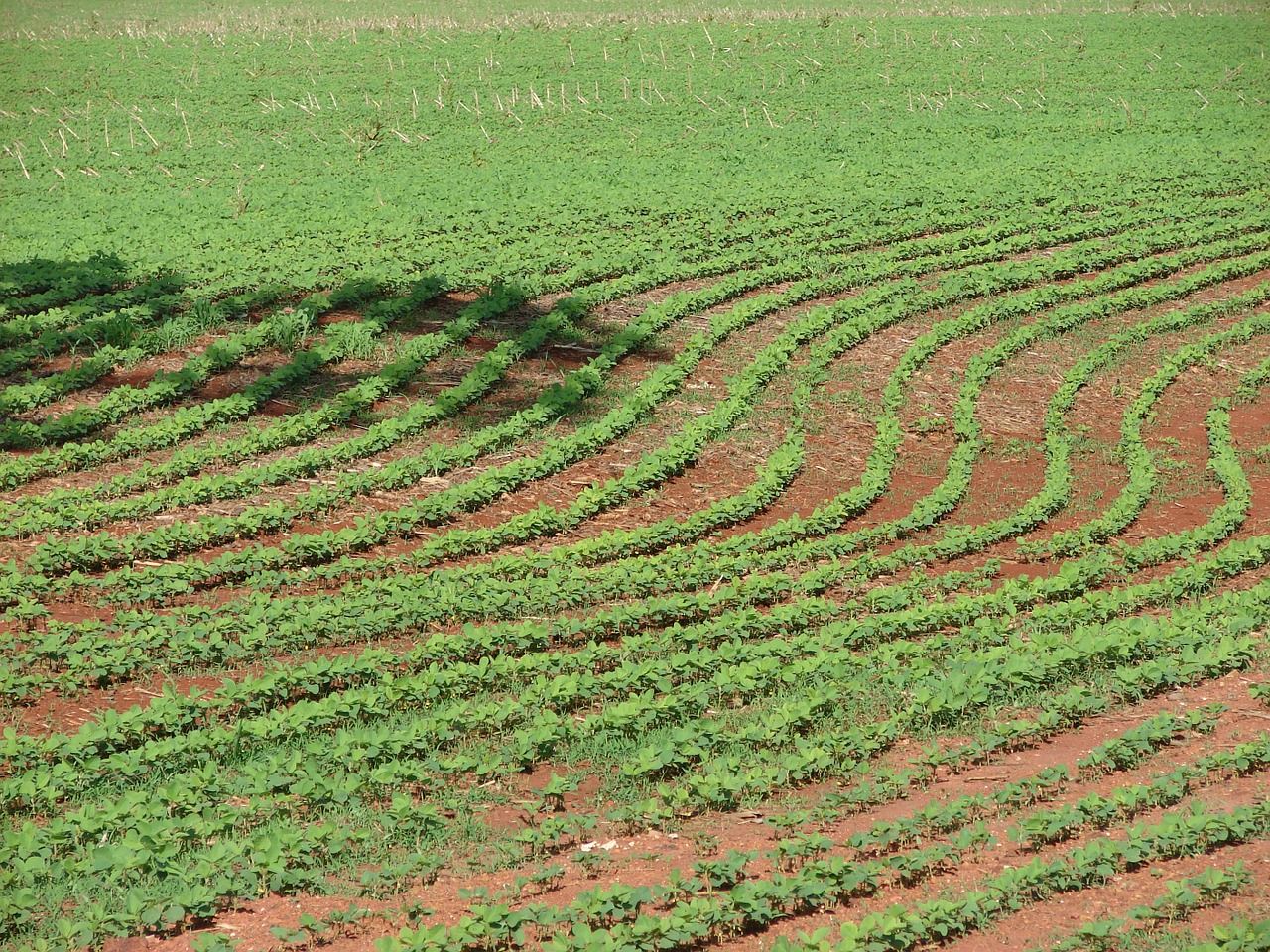Knowing what type of soil you have and what type you need for the crops you have in mind is one of the very most important aspects of successful farming. Knowing your soil type will help you choose crops that will be successful, and understanding the quality of your soil will inform you as to what you need to do to amend and improve it for success. In this article, we discuss the most suitable types of soil for farming. Read on to learn more on what type of soil is best for farming.
What You'll Learn Today
- Begin With Soil Testing
- Seven Types of Soil You Are Likely to Encounter
- Why Is Soil Testing So Important?
- How Often Should Soil Be Tested?
- What Are Cover Crops?
- It’s Important To Take Good Care Of the Soil
- Frequently Asked Questions
- Why is good soil so important for farming and other purposes?
- What is the structure of soil?
- How is soil created?
- Why is good soil so necessary for garden and agriculturally grown plants?
- How can you define “good” soil?
- What characterizes healthy soil?
- Why is soil healthy and stable in some areas yet depleted and exhausted in others?
- What can we do to keep soil healthy and stable?
- Can poor soil be repaired?
Begin With Soil Testing

Test your soil yourself, or call in the help of your county agricultural extension to determine exactly what type of soil you have.
Generally speaking, good growing soil should have well-balanced nutrients such as magnesium, potassium and nitrates. Excesses of any nutrient or micronutrient can spell trouble.
Seven Types of Soil You Are Likely to Encounter

1. Loam
This is a very desirable type of soil because it is light, airy and provides a good growing substrate for a wide variety of vegetables.
2. Sand
It provides very sharp drainage and is a good choice for root vegetables like carrots, turnips and parsnips. Herbs, such as thyme, bush clover, creeping Juniper and Bayberry also do well in sandy soil. Fig and pomegranate trees thrive in sandy soil.
3. Loamy Sand
This is a combination that makes the most of these two good types of soil. It provides good drainage and good nutrition for vegetable crops such as tomatoes, leafy greens, beets and carrots.
4. Clay
Clay is not light and airy, and is not typically good for most fruits and vegetables. Even so, there are some types of plants that grow well in soil with a high percentage of clay.
Among them are cruciferous vegetables such as broccoli and cabbage; some herbs such as red valerian and Yarrow, and some trees such as Black Walnut, maple, pear and cherry.
5. Silt
Silt is quite fertile and provides lots of good nutrients for vegetables such as turnips, cabbage, carrots and lettuce. Fruit trees such as pomegranate and citrus do well in silty soil, as do berries including raspberries, strawberries and blackberries.
6. Chalky Soil
Chalky soil is quite alkaline, and generally needs to be amended to correct this imbalance. Even so, vegetables such as cabbage, spinach, sweet corn and beets can do well in soil with a high chalk content.
7. Peaty Soil
It can be quite beneficial if organic matter such as compost and lime are mixed in to lower its acidity level. This type of soil can provide an excellent substrate for legumes, spinach, cabbage and also for root crops.
Why Is Soil Testing So Important?

If you don’t have your soil tested, you’re flying blind. Different types of crops need different levels of drainage and nutrition.
The pH level of the soil is extremely important in determining whether or not your crop will thrive or fail. Good testing tells you exactly what you have and exactly what you need.
When you have your soil tested, you’ll know the levels of:
- Phosphorus
- Potassium
- Magnesium
- Manganese
- Nitrogen
- Zinc
- Lime
With this knowledge, you can decide what you want to plant and what you need to do to have the healthiest and most productive crops.
How Often Should Soil Be Tested?

Because crops tend to deplete soil of nutrients, it’s a good idea to test the soil every couple of years. It’s also smart to practice crop rotation to avoid heavily depleting your soil of the nutrients needed to feed that crop year after year. Wise crop rotation gives the land a rest and enriches it.
Alternatively, you can consider using the ancient three field system we have described here.
What Are Some Bad Things That Could Be In Soil?
Some types of insect infestation (e.g. grub worms) can be very detrimental in the soil. If you find that there’s a lot of pest larvae in your soil, you’ll want to add in beneficial, predatory insects and beneficial bacteria to help balance that out and get rid of the bad bugs in your soil.
You may also find that there are small rocks in your soil, which under certain circumstances it is a good idea to remove.
You may also find that your soil is bad because it’s lacking in nutrients. Instead of amending it with harsh chemicals, it’s a good idea to add organic compost, manure and other natural amendments. Plant a cover crop that can be turned under as “green manure” when it has matured.
Here is our guide on how you prepare soil for organic farming.
What Are Cover Crops?

Cover crops are crops that improve the soil by protecting it against erosion, making it more receptive to nourishment (e.g. legumes) and enriching the soil when they are turned under at the end of the season.
Planting a cover crop suppresses weed growth and baffles pest insects that may come back year after year when the same crop is planted in the same place every growing season.
These crops are often plowed under once they have matured, and they naturally decompose to enrich the soil.
Typical cover crops include:
- Soybeans
- Clover
- Alfalfa
- Oats
- Rye
Of course, all of these crops could also be harvested at the end of the season. Alternately, they may be used as grazing for livestock.
Soybeans are especially attractive to deer, so fields that have been sown in soybeans for the purpose of rejuvenating the soil are often left open to attract deer to be “harvested” as a source of meat.
It’s Important To Take Good Care Of the Soil
Soil maintenance is essential. The soil is literally the foundation of your farm. If it is improperly managed, you’ll lose your fertile topsoil to erosion.
If it is allowed to become depleted, you will not be able to produce healthy crops. Here are some benefits and disadvantages of sub-soiling.
Understanding what type of soil you have and what you need to do to take good care of it is the basis of good farming. For more on clearing your land, see our article on clearing land for farming.
PHC Film: Soil Is A Living Organism
Frequently Asked Questions
Why is good soil so important for farming and other purposes?
Soil serves as the foundation for myriad plant and animal life. Good soil supports biodiversity and serves as the primary medium for agricultural cultivation. Indeed, we need good soil to provide the food we rely on. In addition to agricultural importance, soil contributes to the structural integrity of the earth’s surface. Good quality soil is crucial for a wide variety of construction endeavors.
What is the structure of soil?
Soil is a relatively thin layer, approximately one meter thick, covering the surface of the Earth. It is made up of a blend of weathered mineral and organic materials, along with air and water. Mineral particles, namely sand, silt, and clay, define its composition and influence properties such as water retention and nutrient absorption capacity.
How is soil created?
Soil formation is a process involving the accumulation of materials from erosion, the breakdown of bedrock through weathering, and the deposition of sediments by natural forces like wind and water. In very cold settings, ice also plays a pivotal role in initial soil development. This is followed by physical, chemical, and biological weathering processes.
Why is good soil so necessary for garden and agriculturally grown plants?
Although there are many types of plants that can thrive without soil, the plants we grow in our home vegetable gardens and in agricultural settings need good soil to survive and thrive. These plants flourish in good soil because it provides them with essential elements. Well amended soil also offers structural support for plants’ root systems, vital nutrients like nitrogen, phosphorus, and potassium, and a network of interconnected spaces that facilitate root access to air and water, both crucial for plant growth.
How can you define “good” soil?
Different types of soil are “good” for different purposes. Soil intended for agricultural and garden use is very different than soil intended for construction purposes. To determine whether your soil is good for your intended purpose, you must identify the qualities necessary for your purpose. Next, evaluate your soil’s factors such as physical structure, water retention capacity, chemical composition including pH levels and nutrient availability, and biological activity. All of these qualities contribute to determining soil quality.
What characterizes healthy soil?
Healthy soil presents a stable ecosystem that supports essential biological processes and demonstrates resilience against pests and diseases. Healthy soil is able to sustain a diverse community of organisms; thereby, enabling efficient nutrient recycling from organic matter decomposition. This process creates natural, organic nourishment in forms accessible to plants.
Why is soil healthy and stable in some areas yet depleted and exhausted in others?
Around the world, soil conditions vary greatly. There are basically three possible scenarios in terms of soil health:
- In natural, long-established ecosystems that have managed to escape human influence, the soil tends to remain stable, healthy and consistent.
- In agricultural settings that have been affected by humans, soil health and stability varies depending upon the type of farming that is being done. For example, farmers who practice crop rotation and use natural weed and pest control methods and organic nutrients can fairly well count on the health and stability of the soil. In large agricultural concerns where heavy machinery, synthetic pest and weed control and fertilizer and monocropping are the norm, the soil is sure to become depleted.
- When natural ecosystems are cleared and put into heavy agricultural use, the soil will quickly erode and become depleted.
What can we do to keep soil healthy and stable?
Every situation is different, so it is important to evaluate soil health on a case by case basis and devise a tailored approach in each case. First and foremost, planning and prevention are the best approaches to keeping soil healthy. Best practices, such as crop rotation, use of cover crops, selection of pest and disease resistant crops can go a long way toward creating and maintaining healthy soil. Ongoing soil testing helps keep gardeners and farmers apprised of the condition of the soil. When pH imbalance, lack of nutrients and other problems are detected, swift measures (e.g. addition of organic matter, mulching, planting of cover crops, etc.) should be taken to address the problem.
Can poor soil be repaired?
It is technically possible to regenerate soil by adding organic matter and protecting damaged soil from harsh environmental elements; however, this takes a very long time. Soil destruction and degradation, on the other hand, happens very rapidly. For this reason, it is wise to recognize that soil cannot really be though of as a renewable resource, so it’s very important to take proactive steps to protect and preserve the soil we have.
Can I use fertilizers or something like that to change the compositions of the soil when it is not really suitable for specific crops?
Fertilizer will not change the composition of soil. To change soil composition, you need to add a combination of organic and inorganic matter. More inorganic matter, such as pea gravel, coarse sand and the like, will improve drainage. Organic matter, such as compost, manure and mulch will add needed nutrients and improve the soil’s ability to retain moisture.
Thanks for the information, it is in-depth.
Recently on my farm, I have noticed the price of fertilizer is so exorbitant that I had to go for an alternative. I started a rabbit and goat farm mainly for their poops and urine. Am hoping to improve my soil with this advice from your web. Once again thank you for the information.
Ps: The war has caused the price of fertilizer to skyrocket. Eventually, I would go fully organic.
we would like to hear from any advice how to correct the high alkaline soil.